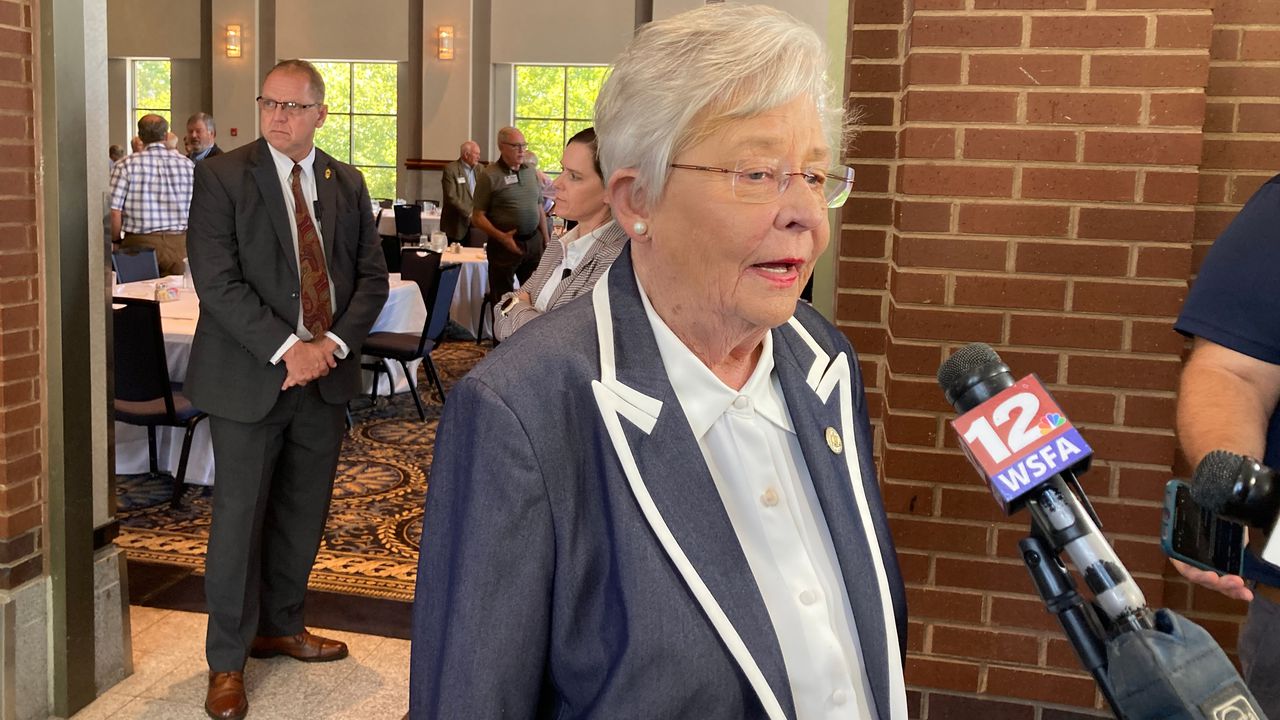Library group on Gov. Iveyâs proposed changes: How is she defining âsexually explicitâ?
The Alabama Public Library Service (APLS) and several other organizations have responded to Gov. Kay Ivey’s proposed amendments to public library rules.
APLS public relations manager Ryan Godfrey said in a statement they will take the letter with the “utmost seriousness” and the organization is “actively engaged to address the issues she has raised and recommendations she has made. We want to assure the public that our commitment to support Alabama’s libraries remains unwavering as we work to formulate a plan to address these issues.”
Matthew Layne, president of the Alabama Library Association, responded via email to Gov. Ivey’s letter to APLS director Nancy Pack. In response to Gov. Ivey’s first proposal to “make state aid for local libraries contingent on the adoption of sensible policies to facilitate greater parental supervision of their children,” Layne said, “I feel like most libraries have institutional policies to encourage parental and/or guardian supervision of children who are in the library.” Several of the policies sent to Gov. Ivey’s office highlighted the mandate to supervise children.
Gov. Ivey’s second rule change is to “require all expenditures of public funds to the American Library Association be approved by the relevant governing authority in an open, public meeting.” Layne said, “I believe most library board meetings are always open to the public, and the approval of funds is typically granted to the library director by the library board.” He added, “many professional affiliations are paid for by individuals and not by the institutions for which they work.”
The third proposed rule from Gov. Ivey is to “reaffirm local libraries’ ability to respond to parental concerns about sexually explicit or other inappropriate materials.”
“To my knowledge, no sexually explicit material has ever been on display in any Alabama library’s children’s department which begs the question, how is the governor’s office defining ‘sexually explicit?’ Common sense and common decency dictate that any material containing sexually explicit images or passages would not be located in a children’s department of a library,” Layne said. “If there were indeed such items, then I would expect the library and the community it serves to act accordingly to have them removed.”
When asked what Gov. Ivey defines as sexually explicit, communications director Gina Maiola referred back to the letter that states, “taking this action will leave the precise details up to the local library boards. But it will ensure that every public library in the state newly considers these important ways to create a welcoming library environment.”
Finally, Layne said he encourages libraries to have an updated collection development policy to define the criteria used when selecting materials and to have a “materials reconsideration policy should an item be challenged.”
“Book challenges are to be expected in libraries as libraries and literature challenge us to think outside of our normal comfort zones,” he said.
Read Freely Alabama (RFA), a non-profit committed to stopping book bans, said in a statement they have “deep concerns about the potential consequences of (Gov. Ivey’s) suggested amendments to the APLS Rules.” The group believes the “outrage” about inappropriate materials is based on misinformation.
“While discussions about literature and its impact are vital, it is equally crucial that the facts informing these debates are accurate,” the organization said. “Persons in leadership positions are capable of making good policy decisions only if they have good information at hand.”
The group offered to meet Gov. Ivey at a local library to review the frequently challenged books and believes library professionals could answer questions about collection policies and the review process.
“Open discussion on these topics alone is something we believe will go a long way in bridging the gulf of misunderstanding,” the group said.
RFA is also hoping for more specifics regarding what is considered “materials deemed harmful.” They’re concerned this will restrict access to materials “based upon their personal biases against marginalized peoples. Striking a balance between respecting parental concerns and preserving the principles of a democratic society is a complex challenge.” The group is hopeful the governor will consider “protecting the constitutional rights of all (her) constituents” and not legislate “according to religious doctrine.”
The group is also concerned that two groups that challenged books, Clean Up Alabama and Moms For Liberty, are targeting books that aren’t sexually explicit but have LGBTQ-affirming themes or images” or themes “of racial injustice or taking a critical view of American history.”
“It is essential to recognize that diverse voices and perspectives contribute to the literary landscape, and exposure to this diversity of experiences helps children develop critical thinking skills and empathy,” the group stated. “Banning or restricting books based on subjective judgments of content can stifle vital learning, and harm the marginalized peoples those books represent.”
Clean Up Alabama said in a statement that the letter “made some really good points, but the proposed policy changes do not go far enough to ensure safe libraries for all children.”
The group confirmed in the statement that APLS should have policies not to allow minors “access to any sexual content,” including sexually explicit content or “content regarding sex, sexuality and gender, but isn’t necessarily explicit. These are subjects that should only be discussed with children at the discretion of parents.”
Related Stories:
